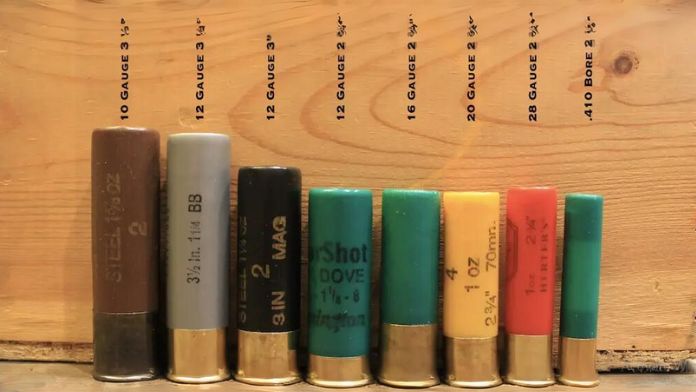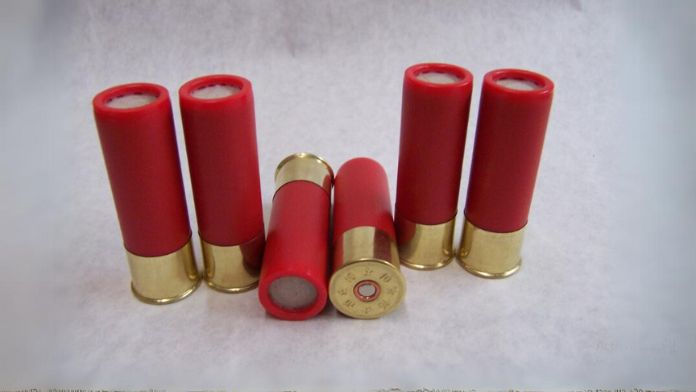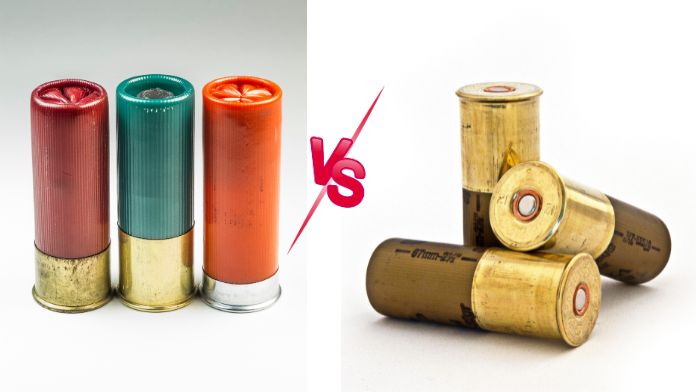Choosing the right shotgun gauge is a crucial decision for any firearm enthusiast or hunter. Among the myriad of options, the 10 Gauge vs 12 Gauge shotguns stand out as popular choices. In this guide, we’ll delve into the world of shotgun gauges, specifically exploring the differences between the 10 gauge and the 12 gauge. From wire gauges to shotgun shell gauges, we’ll cover it all to help you make an informed decision.
Basic of Gauges
Before we discuss the specifics of the 10-gauge and 12-gauge shotguns, let’s understand what a gauge is. The term “gauge” refers to the bore size of a shotgun. It’s the diameter of the barrel, expressed in terms of the number of lead balls of that diameter required to make one pound. The lower the gauge number, the bigger the bore.
What is a 12-Gauge Shotgun?

The 12-gauge shotgun is one of the most popular choices among hunters and shooters. The term “12-gauge” means that 12 lead balls of the barrel’s diameter would weigh one pound. It’s versatile, offering a good balance between power and recoil. The 12-gauge is often recommended for home defense, hunting, various games, and sports shooting.
Now, let’s shift our focus to the 10-gauge shotgun. As the name suggests, it has a larger bore diameter than the 12-gauge. This usually means more power, but is it really necessary for your needs? Let’s explore the factors that differentiate these two gauges.
Firepower Comparison: 10 Gauge vs 12 Gauge
When it comes to firepower, the 10-gauge shotgun generally has the edge. The larger bore allows for more pellets in a shell, providing a wider shot spread and increased stopping power. This makes the 10-gauge suitable for hunting larger game, such as waterfowl and turkeys, where a wider shot pattern can be advantageous.
On the other hand, the 12-gauge is no slouch in the power department. It’s a versatile choice for various applications, offering enough firepower for hunting smaller games and providing effective home defense capabilities.
Recoil Considerations
One of the significant factors that shooters often consider is recoil. The 10-gauge, due to its larger bore and increased powder charge, tends to produce more recoil than the 12-gauge. This can impact accuracy, especially for shooters with less experience or those sensitive to recoil.
The 12-gauge, with its manageable recoil, is often preferred for extended shooting sessions or when introducing newcomers to shotgun sports. It strikes a balance between power and comfort, making it a practical choice for a wide scope of users.
Shotgun Shell Gauges: Exploring Ammunition Compatibility
Shotgun shell gauges play a crucial role in ammunition compatibility. A 12-gauge shotgun is designed to accommodate 12-gauge shells, while a 10-gauge shotgun is built for 10-gauge shells. It’s essential to match the shotgun gauge with the corresponding ammunition to ensure proper function and safety.
When choosing between 10 gauge vs 12 gauge wire, consider the availability and cost of ammunition for each. Generally, 12-gauge ammunition is more widespread and affordable, making it a practical choice for many shooters. However, if you have specific needs that align with the capabilities of a 10-gauge shotgun, the availability of ammunition may be a secondary concern.
Practical Applications: 10 Gauge vs 12 Gauge

To further guide your decision, let’s explore some practical applications of both gauges.
Waterfowl Hunting:
-
- 10 Gauge: Ideal for waterfowl hunting due to its wider shot spread and increased stopping power.
- 12 Gauge: Suitable for waterfowl hunting with a balanced mix of power and shot control.
Turkey Hunting:
-
- 10 Gauge: Offers the power needed for turkey hunting, especially when longer shots are anticipated.
- 12 Gauge: Effective for turkey hunting with a well-controlled shot pattern.
Home Defense:
-
- 10 Gauge: Overkill for typical home defense scenarios, with excessive recoil making it less practical.
- 12 Gauge: Well-suited for home defense with a good balance of power and manageable recoil.
Wire Gauge 12 and Other Comparisons
Now, you might be wondering about the relevance of wire gauge 12 in the context of shotguns. Interestingly, wire gauges extend beyond the realm of firearms. Wire gauge 12 refers to the thickness of electrical wire. When comparing 12-gauge wire with other gauges, such as 14 gauge wire amp, it’s crucial to consider the application and electrical requirements.
For instance, a 12-gauge extension cord can handle more electrical current than a 14-gauge extension cord. This comparison draws parallels to the shotgun world – the 12-gauge shotgun, with its larger bore, can handle more power and deliver a more significant punch compared to a 14-gauge shotgun.
Addressing Common Questions: 4 Gauge vs 12 Gauge and 8 Gauge vs 12 Gauge
It’s not uncommon for shotgun enthusiasts to ponder other gauge options, such as 4 gauge and 8 gauge. Let’s address these comparisons briefly.
4 Gauge vs 12 Gauge:
-
- The 4-gauge shotgun is significantly larger than the 12-gauge and is considered obsolete in modern firearms. It was historically used for large-game hunting, but due to its recoil and limited practicality, it has fallen out of favor.
8 Gauge vs 12 Gauge:
-
- Similar to the 4-gauge, the 8-gauge shotgun is a relic of the past. It was used for massive game hunting and industrial purposes. The 12 gauge in caliber’s versatility and practicality have largely overshadowed these larger gauges in contemporary firearms.
Conclusion
In conclusion, the choice between a 10-gauge and 12-gauge shotgun ultimately depends on your specific needs and preferences. The 10-gauge offers more power, making it suitable for specialized applications, while the 12-gauge strikes a balance between power and practicality, making it a versatile choice for various scenarios.
Consider factors such as intended use, recoil tolerance, and ammunition availability when making your decision. Whether you opt for the widespread 12-gauge or the powerful 10-gauge, both offer unique advantages that can enhance your shooting experience. Take the time to test and handle different gauges to find the one that best suits your individual needs and shooting style.
FAQ
Why Is a 10 Gauge Shotgun Bigger Than a 12 Gauge?
In contrast to a 12 gauge (or 12 bore) round ball, this is equally true for a 10 gauge (or 10 bore) ball. To put it briefly, the bore diameter of a shotgun increases with decreasing gauge. For this reason, the diameter of a 10 gauge shotgun is more than that of a 12 gauge shotgun, which is greater than that of a 20 gauge shotgun, etc.
How Much Does a 10 Gauge Weigh?
Many experienced long-range goose shooters will tell you the 10 beats the big 12 even though they shoot nearly identical loads. Weight really distinguishes the 10 from the magnum 12. Ten-gauges have big frames, and most weigh 10-12 pounds.
Does 12 Gauge Outdo 10 Gauge?
The 3.5″ 12 gauge is still very far from outdoing the performance of the 10 gauge. The 12 gauge shows little or no range difference over the 3.5″ 12 gauge. The ten-gauge in 3-1/2″ is .775″ gauge 10, and the 12 gauge is .729″~.742″ 12 gauge.

